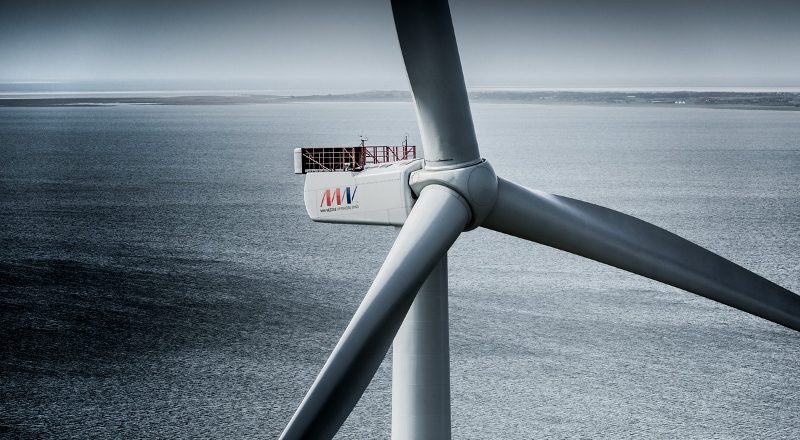New Jersey Gov. Phil Murphy directed state utility regulators to implement the state’s Offshore Wind Renewable Energy Credit program, the first step toward building 1,100 megawatts of generation on federal leases off the Garden State.
“It will be a big game-changer in our economy … today New Jersey will end the nearly eight years of stalling and stonewalling,” Murphy said Wednesday in announcing the move, a centerpiece in his 2017 election campaign to succeed former Gov. Chris Christie. “We’re going to create the good-paying union jobs” with a new offshore energy sector, said Murphy.
Ultimately, Murphy says 3.5 gigawatts could be developed on offshore leases — “the number-one aspirational wind field in the world” — more than even the ambitious 2.4-GW plan issued Monday by New York state officials. With leases now available, the first turbine could be operating in the early 2020s on areas now held by U.S. Wind and Ørsted (formerly Dong Energy), the Danish energy group that has also established a foothold with federal leasing off Massachusetts.
Murphy signed the executive order in Atlantic City, N.J., site of the first commercial-scale onshore wind power project — and of the ill-fated Fishermen’s Energy offshore demonstration project.
That five-turbine, 30-MW demonstration project was to be built in state waters off the city, enabled by the state Offshore Wind Economic Development Act that Christie signed in 2010. But Christie’s support and that of the state Board of Public Utilities quickly cooled, amid objections that power from Fishermen’s Energy would cost ratepayers too much, even after generous support from the U.S. Department of Energy.

Ørsted and U.S. Wind hold federal leases that position them for building major offshore wind power arrays off New Jersey. BOEM image.
Christie’s environmental critics saw another political motive in the governor’s unsuccessful bid for the 2016 Republican presidential nomination, when he played to a national GOP audience deeply skeptical of renewable energy and government subsidies. Meanwhile, Deepwater Wind built the first U.S. offshore wind array — a 30-MW project like the Atlantic City proposal — seizing first place as New Jersey wind power advocates fumed over their political ill fortune.
“Other states, such as Rhode Island, have gotten the jobs and economic advantages of wind while New Jersey has fallen behind,” said Jeff Tittel of the Sierra Club.
With Christie out of the picture after his second term, offshore wind developers saw their opportunity with Murphy’s candidacy, and met early and often with the governor-elect’s team. Depending on the pace of permitting and design, Ørsted officials have said they could be in construction in 2020.
In a recent roundtable with offshore developers, labor and other interest groups, the consensus was “we should come out of the blocks with a big RFP (request for proposals, around 1,100 megawatts,” said Murphy. The goal is to recapture the lead New Jersey seemed to have back in 2010, long before it was surpassed by efforts to develop offshore wind generation in Rhode Island and Maryland, he said.
“We have the location, that is key,” said state Sen. Steve Sweeney, the Democratic president of the state Senate and a longtime advocate of developing port and manufacturing facilities in southern New Jersey to support offshore wind development. Sweeney noted how the federal Bureau of Ocean Energy Management and wind developers “are talking about windmills from Virginia to Maine, and we’re right in the middle of it.”
---





